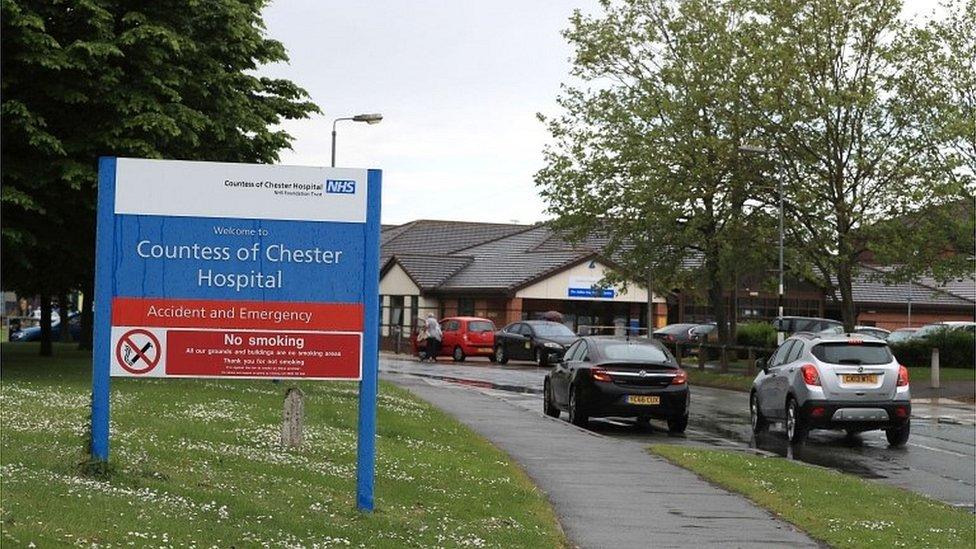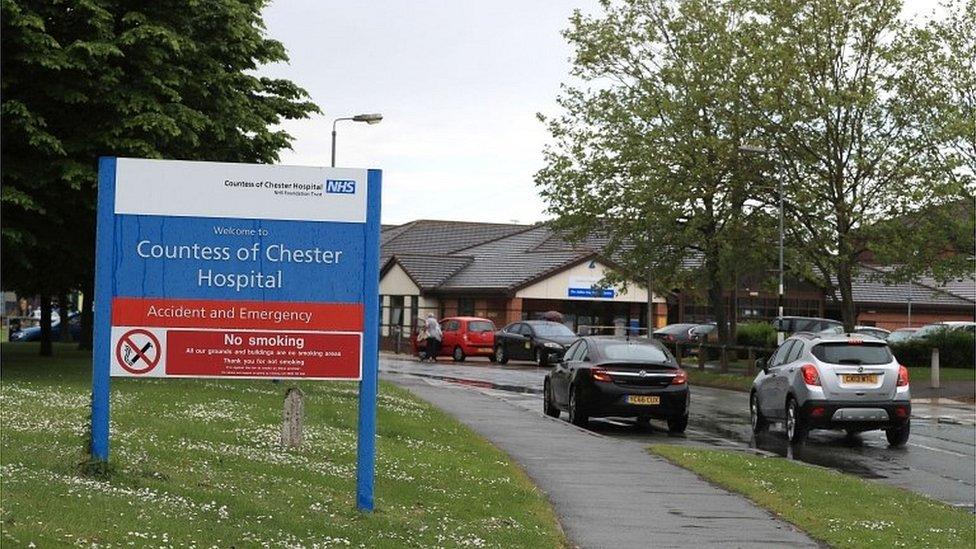Countess of Chester Hospital: 'Bed-blocking' by Welsh patients rises
- Published

The hospital trust's chairman previously claimed it was not being fully paid for treating patients from Wales
Hospital bosses in Chester claim so-called "bed-blocking" by patients from Wales ready to go home has risen by more than a quarter in the past year.
The Countess of Chester Hospital trust was told that contrasted with a 24 percent fall in delayed transfers of care for west Cheshire residents.
Officers raised concerns about funding from Wales, where a fifth of the hospital's patients come from.
Welsh ministers have denied claims they were not paying their fair share.
Delayed transfers of care (DTOCs) can be caused by issues either in the health system or in the social care system, and lead to beds needed by patients in hospital being unavailable - which can be a contributor to lengthy A&E delays.
It is the second month in a row that Countess bosses have raised concerns about working with the Welsh NHS system, according to the Local Democracy Reporting Service.
Chief finance officer Simon Holden told a trust meeting on Tuesday that said DTOCs involving patients from west Cheshire had fallen by 24 per cent compared to last year.
However, "if you just compare Wales this year to Wales last year, it has grown by 26 per cent", he added.
Mr Holden said the trust was facing a deficit of £12.7m for the 2018/19 financial year and a joint meeting between trust executives and NHS Wales officials would be held in the new year.
In October, the Welsh Government denied claims by trust board chairman Sir Duncan Nichol that the Countess of Chester was "not being paid" for all its work.
It said treatment for Welsh patients was being funded in line with the pricing rules set by the NHS in England.
The Welsh Government said health boards and local authorities were aware of the need to reduce delayed transfers of care, saying the rate of improvement had been "increasingly evident" in recent years.
A spokesperson said an extra £35m had been made available to support health and social care over the winter, in addition to longer term plans to tackle persistent problems which lead to delayed transfers of care.
- Published26 October 2018

- Published23 October 2018
